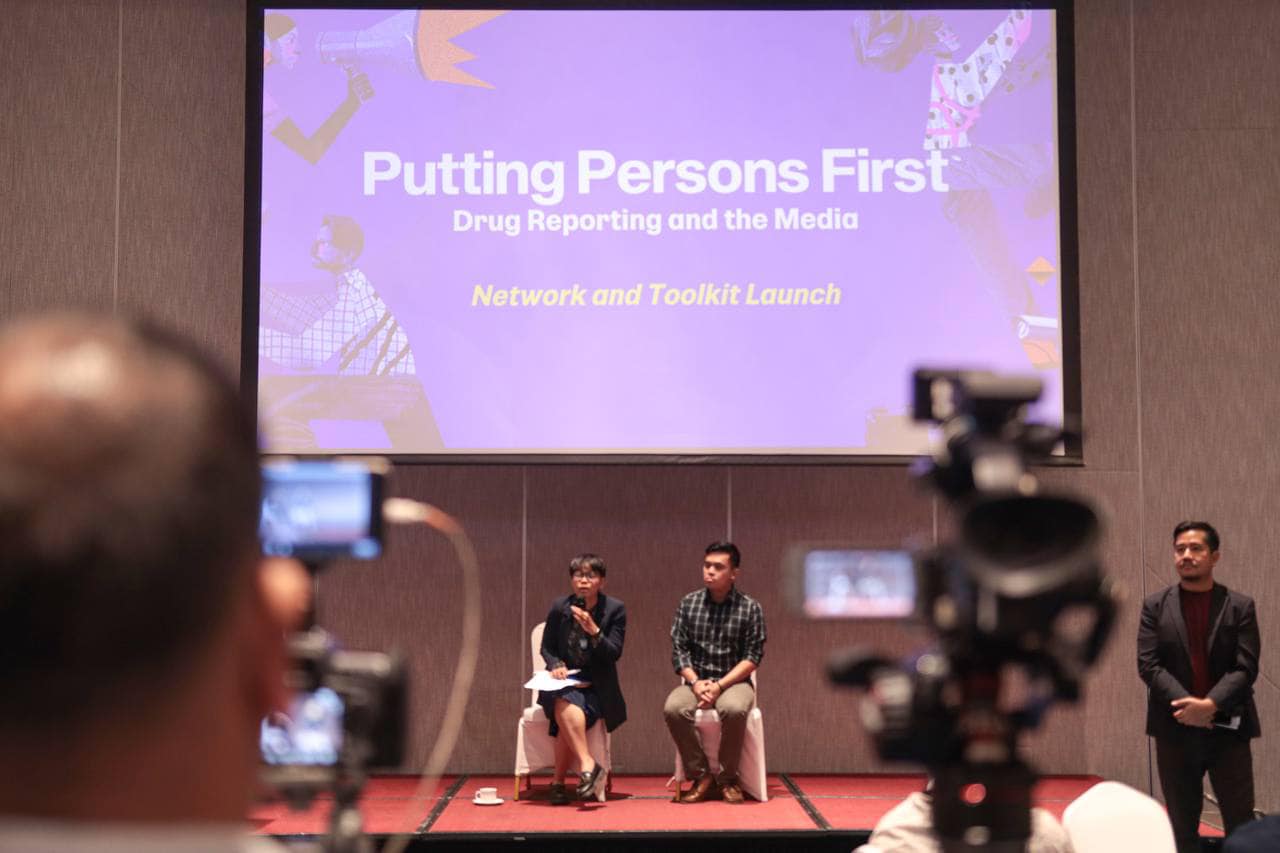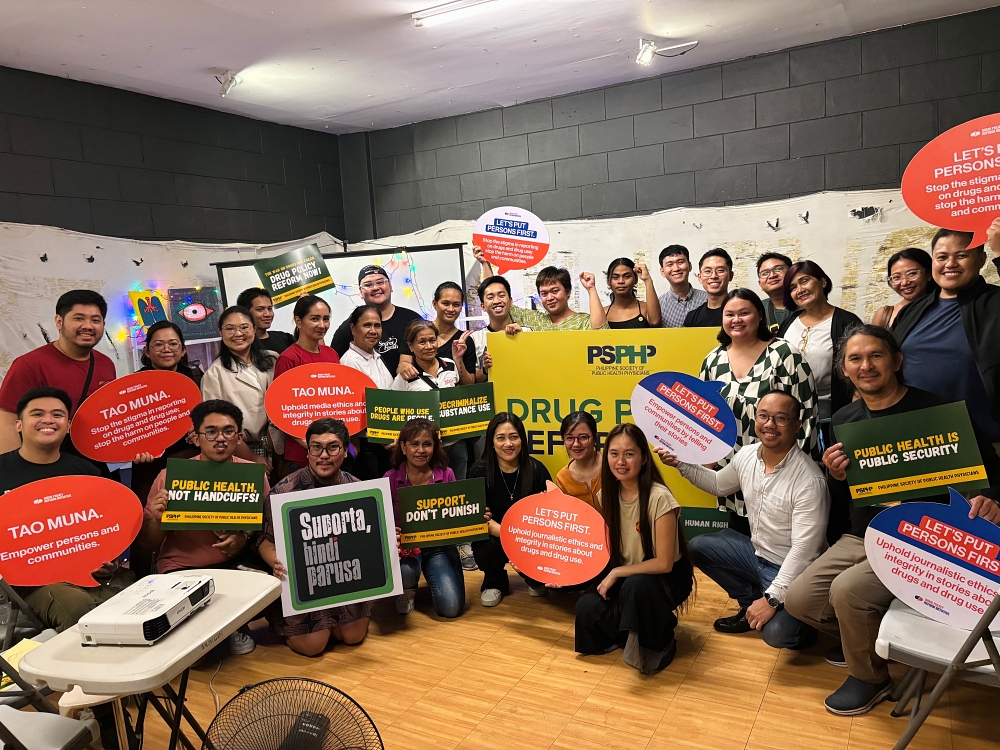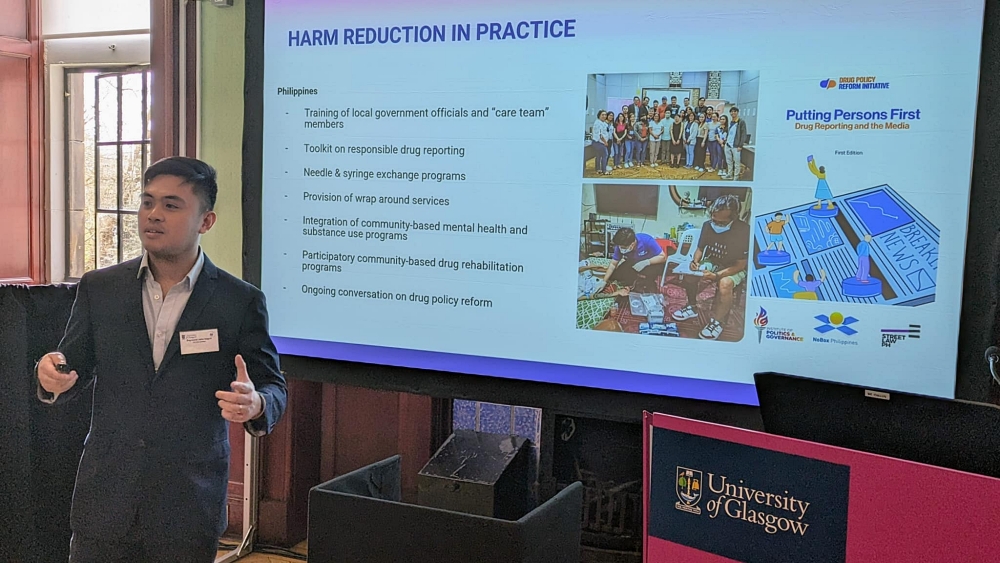Reimagining substance use services in the Philippines: What can the health sector consider?
Criminality and accountability are the dominant themes in the discourse on drugs in the Philippines. In the hearings led by the House Quad Committees last year, two observations stood out for me: justice for the victims of extrajudicial killings and the resurgence of human rights in the vocabulary of politicians. Yet, amid the lengthy discussions and the high media attention, a crucial discussion was glaringly absent: drug services reform.
The committee report from these hearings hinted at the need for drug policy reforms. But so far, concrete changes remain elusive. If the Philippines is to move forward, we must reimagine our approach to drug policy — not solely as a matter of criminal justice, but as a health issue that demands compassion, evidence-based interventions, and meaningful support for those affected.
In this article, I share five areas as a public health physician that can be pursued to enact meaningful reforms on drug services:
Expand services beyond rehabilitation
Currently, drug-related services in the Philippines focus primarily on prevention, treatment, and rehabilitation. Drug policy scholar and fellow physician Gideon Lasco wrote an article on the narratives surrounding rehabilitation, which is usually equated with a health-oriented approach. While rehabilitation is part of the services for people who use drugs, it is not enough. Rehabilitation may not even be the most appropriate ‘treatment’ for a specific segment of the population.

The United Nations Office on Drugs and Crime and the World Health Organization advocate for a more comprehensive set of services, including harm reduction measures. Harm reduction is a pragmatic approach that seeks to minimize the negative health, social, and legal impacts associated with drug use, without necessarily requiring abstinence. The trend of evidence presents promise in reducing drug-related risks through the provision of clean needles and syringes for people who inject drugs, ensuring hydration and rest for those who use stimulants, and implementation of drug substitution programs. Harm reduction approaches have the potential to complement existing approaches by meeting people where they are.
Develop additional indicators for success of substance use programming
For too long, the success of drug policies in the Philippines has been measured by the number of arrests and completion rates of rehabilitation programs. These indicators, however, paint an incomplete picture.
The true success of drug services should be measured by outcomes that actually matter: decreased substance use, improved ability to manage cravings, enhanced well-being, and stronger social connections. By adopting a broader set of indicators, we can better assess the effectiveness of our programs, allocate resources more efficiently, and ensure that our programs meet the needs of communities.
Increase roles of the health and social sectors
A reimagined drug policy requires a fundamental shift in governance. The Department of Health and the Department of Social Welfare and Development must play more visible and proactive roles in the Dangerous Drugs Board, particularly in conversations that shape drug services.
The DOH is best positioned to provide evidence-based health interventions, highlight existing local models of care, and provide guidance based on international normative frameworks. The DOH’s role in providing technical guidance to the Anti-Drug Abuse Councils (who are currently under the supervision of the Department of the Interior and Local Government) may be further explored.
DSWD can address the social determinants of substance use (poverty, unemployment, and lack of education) and connect individuals to economic and social support. The role of law enforcement agencies must be recalibrated. Other countries have demonstrated the potential of diversion programs where police are trained to refer people who use drugs to services instead of incarceration.

Building capacity of health and non-health workers
Substance use receives little attention in nursing and medical school curricula, leaving many health professionals ill-equipped to manage these cases at the primary care level. The Philippines must invest in training and professional development, ensuring that health workers are guided by the latest evidence and ethical principles. The involvement of social workers in substance use programming also ensures that a holistic approach is provided beyond the medicalized approach.
Integrating substance use into universal healthcare
One of the most significant opportunities for reform lies in the integration of substance use services into the broader framework of Universal Health Care. In an activity organized by the Philippine Society of Public Health Physicians as part of the Support Don’t Punish Global Day of Action, experts highlighted the limited coverage of PhilHealth benefit packages for substance use.
We must reimagine our approach to drug policy — not solely as a matter of criminal justice, but as a health issue that demands compassion, evidence-based interventions, and meaningful support for those affected.
Currently, PhilHealth only covers medical detoxification for those with substance use disorders, leaving many without access to the comprehensive care they need. If we are to treat substance use as a health concern, then UHC must include a comprehensive range of services for people who use drugs, from harm reduction and outpatient care to mental health support and social reintegration.
The discourse on drugs in the Philippines is at a crossroads. There is increasing appreciation of multisectoral action, with each sector having its fair share of responsibility in addressing the harms associated with drugs. While I offer key directions for the health sector in this article, I recognize that this may not be the only lens that matters.

Further conversations with those working in the local government, law enforcement, social welfare, and other sectors must be facilitated to create a drug policy that truly serves the Filipino people. However, these conversations must be grounded on the basic appreciation of evidence, human rights, and meaningful participation of the people with lived experience.


